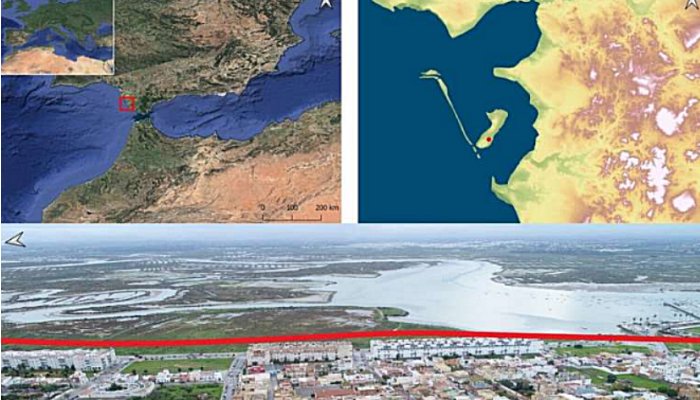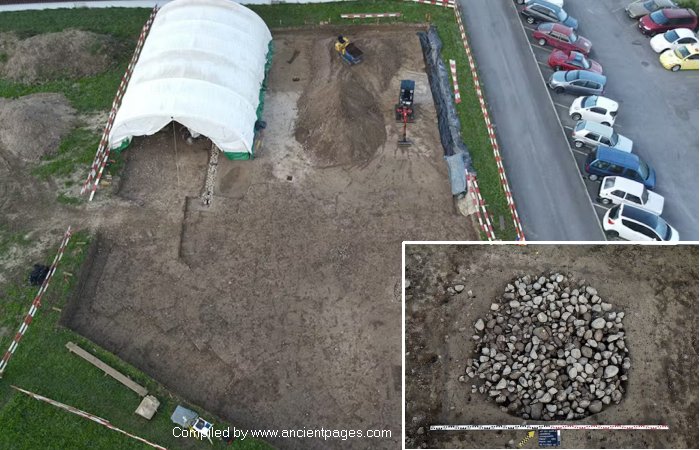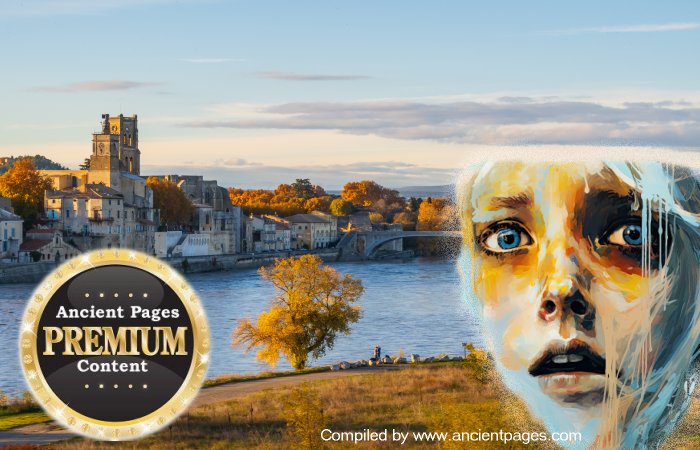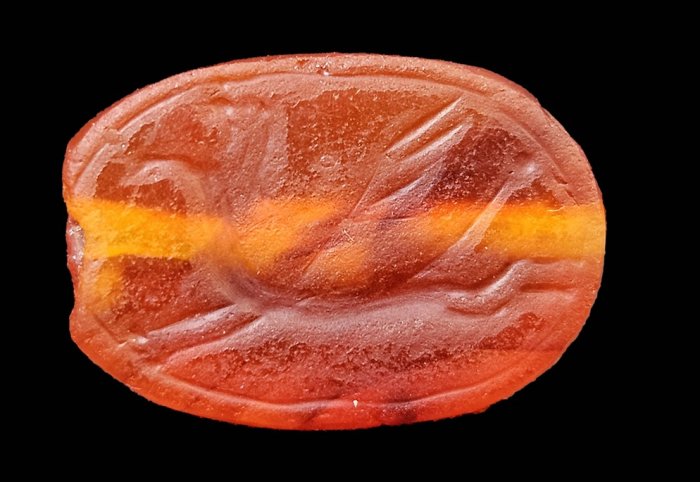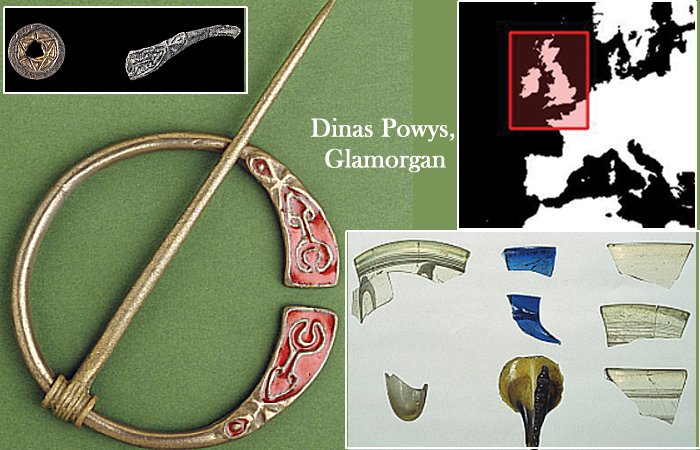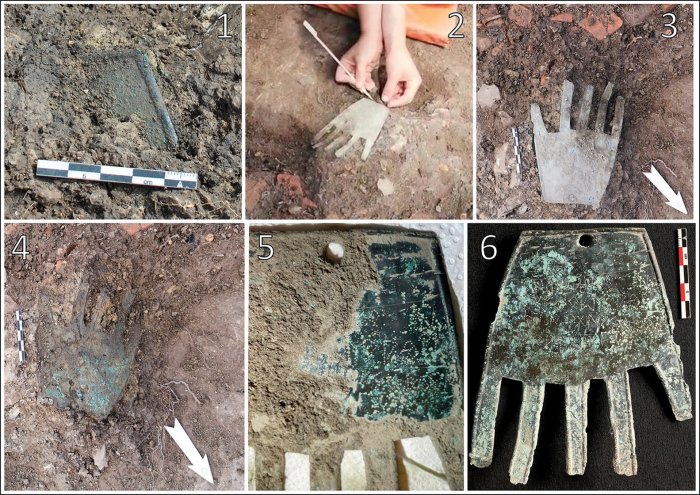Conny Waters – AncientPages.com – Seven impressive Bronze Age swords and a large hoard of Slavic coins have been unearthed by volunteer archaeologists in Germany.
The find was made in Mecklenburg-Western Pomerania. The Mecklenburg-Vorpommern Ministry of Science, Culture, Federal and European Affairs announced in a press release that the seven swords were found in fragments near Mirow (Mecklenburg Lake District).
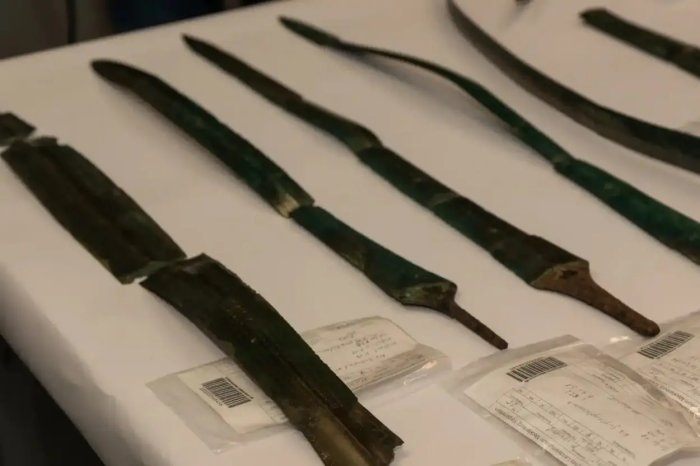
Credit: Mecklenburg-Vorpommern Ministry of Science, Culture, Federal and European Affairs
It can be ᴀssumed that they came to the surface some time ago when a trench was being dredged and spread over a larger area with the dredged material.
Originally, the swords were probably sunk into the lowlands as consecration or sacrificial offerings. Although such deposits of valuable items are not unusual, many Bronze Age swords have never been discovered in one place in Mecklenburg-Western Pomerania. Scientific dating has shown that the swords date back to the Bronze Age. Their age is estimated at around 3,000 years.
The finders meticulously tracked down the individual fragments, making it possible to ᴀssemble the swords almost completely. The recovery was carried out together with an excavation technician from the state archaeology department.
The 6,000 silver coins from the 11th century were found on Rügen, Germany’s largest island. They were scattered over a larger area, but most of them were in a clay pot.
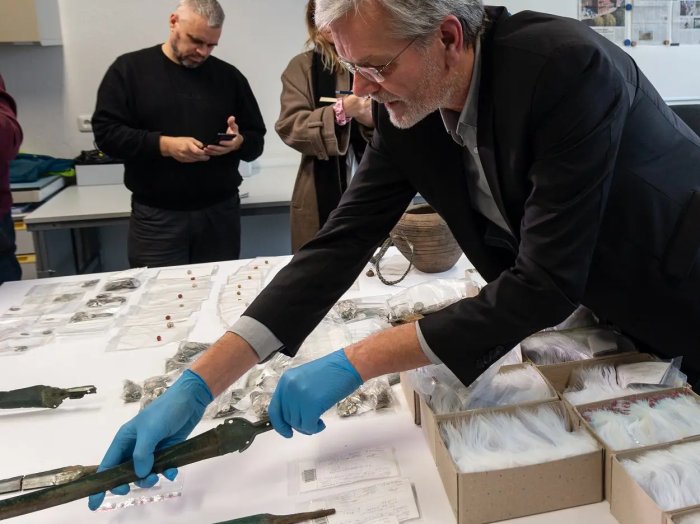
Credit: Mecklenburg-Vorpommern Ministry of Science, Culture, Federal and European Affairs
The coins were also found by volunteer conservationists, more precisely by the “De Ackerlöper” working group. The origins of the coins are very different. Some of the coins are from Western Germany, while others can be traced to the Meißen-Upper Lusatia region. About 10 percent of the coins come from England, Denmark, Bohemia, and Hungary.
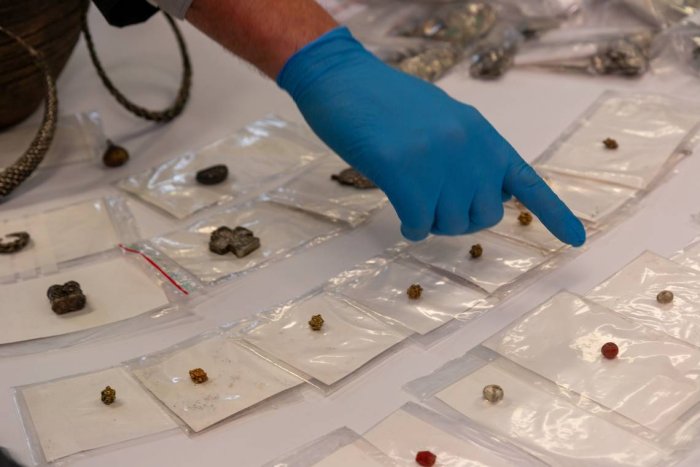
Credit: Mecklenburg-Vorpommern Ministry of Science, Culture, Federal and European Affairs
The unearthed coins reflect trade relationships in the 11th century. Scientists point out that this is the largest Slavic coin hoard of the post-war period to date.
Another very unusual find is the reliquary containers that were found in the Mecklenburg Lake District. A volunteer conservationist discovered the treasure during an inspection. In a pot with around 1,700 coins were neck and finger rings, a pearl necklace (with gold, rock crystal, and carnelian beads), and two reliquary containers.
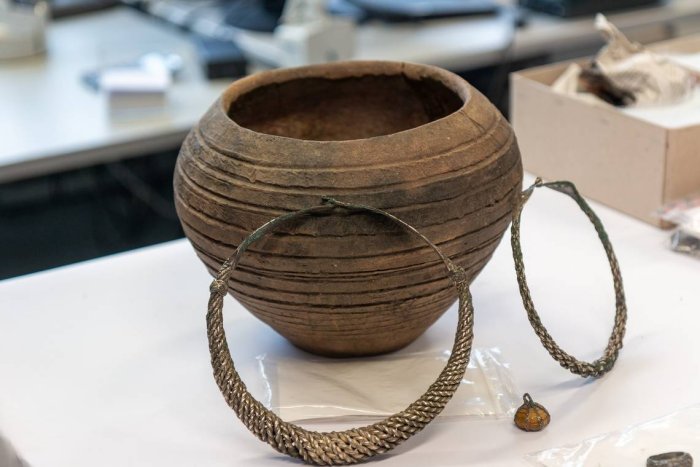
Credit: Mecklenburg-Vorpommern Ministry of Science, Culture, Federal and European Affairs
The researcher explained the two reliquary containers offer surprising evidence of the Christian faith in an area that was still largely influenced by other beliefs at the time.
See also: More Archaeology News
“Around 250 volunteers are currently active in the preservation of archaeological monuments. About the same number are currently undergoing relevant training. They are indispensable for preserving our cultural heritage in Mecklenburg-Western Pomerania,” Culture Minister Bettina Martin said, highlighting the work of the volunteer archaeological preservationists in Mecklenburg-Western Pomerania.
Written by Conny Waters – AncientPages.com Staff Writer
